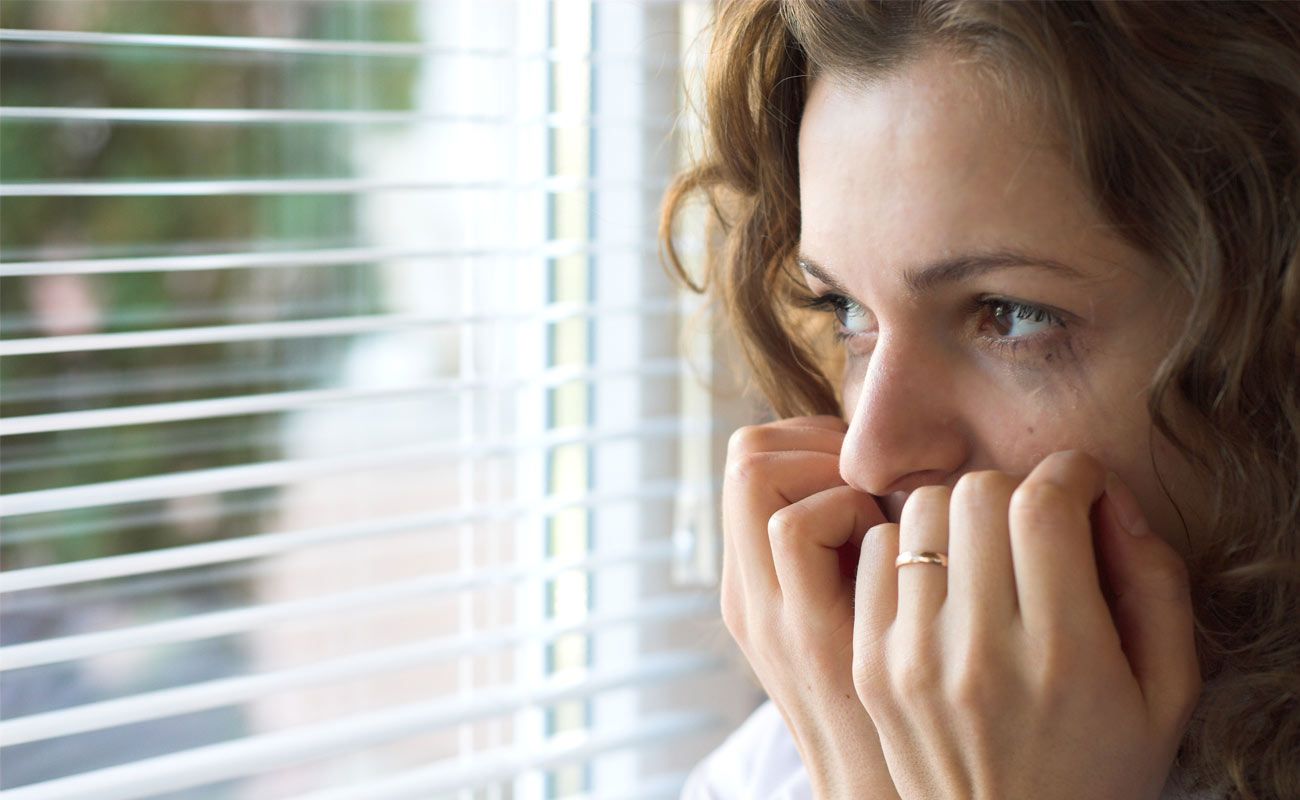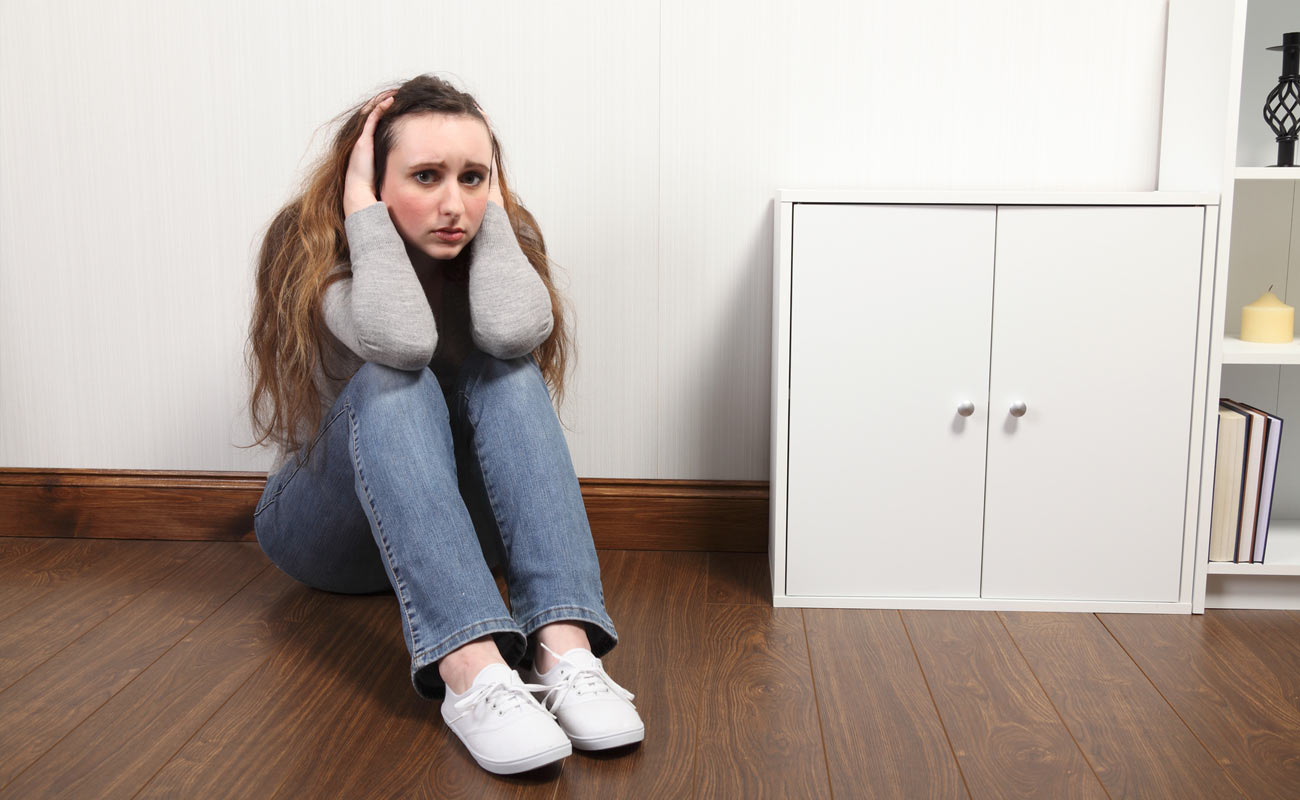
Agoraphobia is a kind of anxiety in which you fear and avoid positions or circumstances that there is no escape from them. In this condition, you fear an actual or anticipated situation. For instance, you panic thinking about using public transportation, being in open or enclosed spaces, standing in line, or even being among the crowd.
All in all, the feel of anxiety is induced due to fear that there's no easy way to get away or get help. Most of the patients with agoraphobia develop the condition after having one or more panic attacks. These attacks makes the patients worry about having another attack and avoiding the places where it may occur again.
Those with agoraphobia hardly feel safe in public places, particularly those places where crowds gather together. These individuals always feel that they need a friend or a relative to keep them company in public places. This fear may be so devastating that the person may not be able to leave the home.
Since treating agoraphobia means that a person has to face his fear, it could be difficult and challenging. However, with the help of psychotherapy and medications, you can get free from the chain of agoraphobia and live a better life.

Those with agoraphobia usually have:
• fear of leaving the home for long period of time
• fear of being alone in the social situation
• fear of losing control in public places
• fear of staying in places like a car or elevator because it would be hard to escape from these places
• feelings of seclusion or detachment from others
• feeling of anxiety or nervousness
Most of the time agoraphobia happens along with panic attacks. Panic attacks are a sequence of symptoms that often happen in patient with anxiety and other mental disorders. Some serious physical symptoms could come up as the result of panic attacks, including:
• pain in chest
• fast heart beat
• dyspnea
• faintness
• sweating
• shaking
• choking
• hot flashes
• feeling cold
• vomiting
• emotionlessness
• diarrhea
• tingling sensations
Those with agoraphobia might experience panic attacks every time they are about to enter a crowded, uncomfortable, or stressful situation, which, in turn, enhances the fear.

Agoraphobia diagnosis is carried out based on the signs and symptoms. The medical practitioner will ask you about the time of starting symptoms and how often they come up. Your medical records and family history may as be the subject of question. Blood tests may also be performed to help reject the physical causes for the symptoms.
The American Psychiatric Association’s Diagnostic and Statistical Manual of Mental Disorders (DSM) has listed some specific criteria that symptoms should have for diagnosing agoraphobia.
In order to be diagnosed with agoraphobia, you have to have intensified feeling of fear and anxiety in at least two of the following situations:
• use of public transportation means, like bus or train
• being in open spaces, like a parking lot
• being in closed places, like an elevator
• being in crowded places
• being away from home without companion
In order to diagnose panic attack comes along agoraphobia, there are some extra criteria. Recurrent panic attacks have to occur to you and each panic attack should be followed by:
• fear of occurring some more panic attacks
• fear of the ramifications and repercussion of panic attacks, like heart attack or losing control
• change in behavior resulting from the panic attacks
Diagnosing agoraphobia should be performed meticulously so that it wouldn’t be confuse with substance abuse or some other disorders.

There are many different treatments for agoraphobia. Most often a combination of these methods of treatment is required to patient get fully recovered.
Psychotherapy (which is also called talk therapy) refer to the meeting between a patient with a therapist or mental health professional on a regular basis. These meeting provide you with the opportunity to discuss the fears and emotions or any contributing factor to your anxiety. To get the best results psychotherapy usually comes with medications. It could be regarded as a general short-term treatment which will be stopped when you can deal with your feeling of anxiety.
Cognitive Behavioral Therapy (CBT)
This is the most prevalent version of psychotherapy employed to treat those suffering from agoraphobia. CBT may help you perceive the misrepresented feelings and views regarding agoraphobia. By placing healthy thought in your mind and removing the unhealthy ones and teaching you how to cope with stressful situations, CBT helps you regain the control you’re your life.
It is another way of helping you overcome your fear and anxiety. In Exposure Therapy, you will gradually and gently be exposed to those situations or places make you anxious. This typeof therapy could gradually make your fears go away.
Medications
Some medicines may be helpful for reducing the symptoms of your agoraphobia or panic attack. Some of these medicines are as follows:
• selective serotonin reuptake inhibitors, like paroxetine (Paxil) or fluoxetine (Prozac)
• selective serotonin and norepinephrine reuptake inhibitors, like venlafaxine (Effexor) or duloxetine (Cymbalta)
• anti-anxiety drugs, including alprazolam (Xanax) amd clonazepam (Klonopin)
• tricyclic antidepressants, including nortriptyline (Pamelor) and amitriptyline (Elavil).
Lifestyle changes probably do not treat agoraphobia. However, they can be important factors in reducing overall anxiety. The following factors could be very useful:
• Performing regular exercise to increase the releasing brain chemicals that make you feel happier and put you in relaxed position.
• Consuming healthy foods that contain vegetables, whole grains, and lean protein so that you feel better.
• performing meditation or deep breathing exercises on daily basis so that anxiety could be reduced and the panic attack could be faded away.
At the time of treatment, you’d better not take herbs and dietary supplements. Although these are natural remedies, they are not effective for treating anxiety; they may even neutralize the effectiveness of the medicines prescribe by the medical professional.
Submit Comment